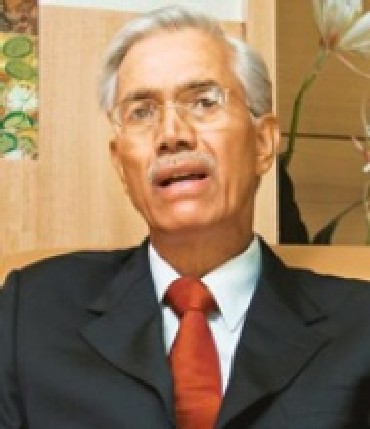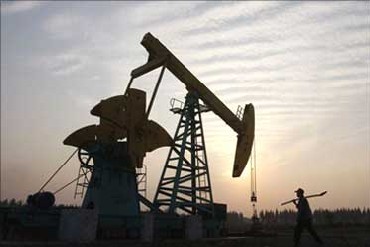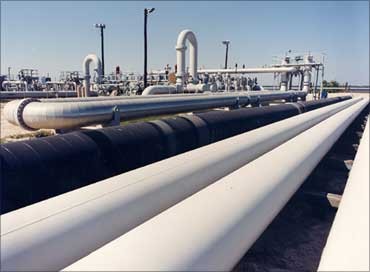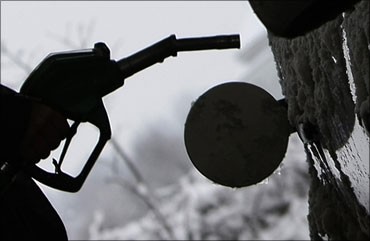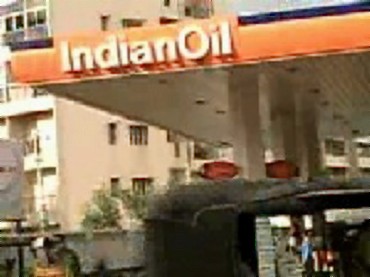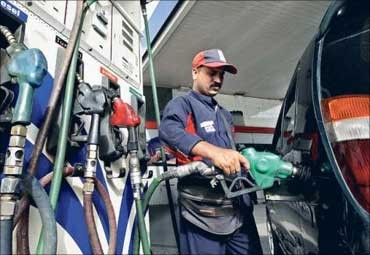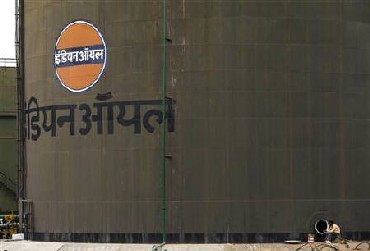 | « Back to article | Print this article |
'We will be happy if diesel is deregulated'
State-owned Indian Oil Corporation (IOC) - a Fortune 500 company - dominates the Indian market with a 49.6 per cent market share.
The company, however, is not going through the best of times. About a year ago, its expectations were raised with the government deciding to decontrol petrol prices, assuring that diesel would follow.
Today, IOC's loss on every litre of diesel runs into double digits. The company is sitting on high borrowings, a skewed debt-equity ratio and heavy losses.
R S Butola, the man at the helm of affairs, talks about the impact of inconsistent government policies in the oil sector and the company's strategy:
Click NEXT to read more...
'We will be happy if diesel is deregulated'
What is your view on global oil and gas prices after signs of revival in the western economies?
You cannot predict crude oil prices. The year 2008-2009 reminded us how risky it can be to do that. Though on the fundamental side there is no reason for crude oil prices to be high, they remain high.
There are still distinct features like the price differential between West Texas Intermediate (WTI) and Brent crude. WTI is hovering at $99 a barrel whereas Brent is around $115 a barrel.
Traditionally, WTI has commanded a premium over Brent, but it is the reverse now. This is because in the US the demand for gasoline and gasoil is falling and inventories are very high.
Demand is not very high in Europe either, but there is demand from China and India. There is no real reason for prices to be very high, but one possible reason is that production costs are high.
Besides, there are other factors at play like the relationship between the currency price and commodities. When the dollar weakens, people like to buy commodities. This trend has increased over the last two to three years. There are many other factors at play including demand and supply.
Click NEXT to read more...
'We will be happy if diesel is deregulated'
How does the lack of consistency in pricing petroleum affect the company?
If crude prices continue to surge and it is not passed on to the consumer, it will certainly impact growth. So far as inflation is concerned, it will increase whether the government passes on the increase or not since money supply is fixed in the economy.
To say we are containing inflation by not increasing prices is not right. However, pricing is a major government decision and it is wise enough to decide whether prices should remain regulated or be deregulated in a calibrated manner.
As indicated earlier, we will be happy if diesel is deregulated. Our plea would be that even if the government decided to keep diesel regulated, we should be compensated. Moreover, there should be transparency.
What is hitting companies, whether upstream or downstream, is that we do not know which mechanism will be adopted in a given quarter.
Click NEXT to read more...
'We will be happy if diesel is deregulated'
Have regulation and subsidies pushed the private sector out of oil retailing and is there no competition among public sector undertakings (PSUs)?
The sector has been dominated by PSUs and private companies were allowed to open retail outlets only recently.
They picked up market share but it was not very high. It is incorrect to say there is no competition among PSUs because prices are fixed, since everybody is importing.
But for duty adjustment and freight, the price would be the same as the international price. If there is an established international price, even if we were to sell at a very high price with the government's approval, we would still be retrained by competition.
Click NEXT to read more...
'We will be happy if diesel is deregulated'
If you were to export, do you think you will be competitive enough?
Since oil products are globally tradable we will have to compete irrespective of high or low profit. If I have to sell it to Europe I cannot sell at a price higher than the global price.
If my cost of production is higher, I will make less profit. While we are competitive in skills, we will also have some edge over international companies due to cheaper labour cost.
Click NEXT to read more...
'We will be happy if diesel is deregulated'
The company, already the biggest refiner in the country, is looking to set up another refinery. What is the reason for adding capacity when we are moving towards surplus?
A coastal refinery will give us two advantages. First, we will be able to export products. Second, it will help us reduce the cost through blending cheaper (high sulphur) crude.
We will be setting it up somewhere near Karnataka on the western coast. It needs to have a 15-18 million tonne capacity to be competitive.
This is on the drawing board right now and could be dropped as well. But we understand that there will be a surplus for sometime between 2012 and 2017.
If we can make it operational during 2017-18, we will be able to capture the gap in supply.
Click NEXT to read more...
'We will be happy if diesel is deregulated'
What is the investment the company will make in 12th Plan?
We are working it out. We will have to spend Rs 15,000 crore (Rs 150 billion) annually for the next few years on existing projects like the Paradip refinery. This could go up if we go for new projects.
Are you looking at some overseas acquisitions?
As a company, we are not in a position to make such large acquisitions due to a lack of expertise. Right now the focus is to develop expertise.
We are not looking at any major project outside. We have a tie-up with Oil India Limited. It is also possible to join hands with other oil PSUs for international ventures.
Click NEXT to read more...
'We will be happy if diesel is deregulated'
What are the new business areas that IOC is looking at?
Nuclear power is one area in which we have invested. We would also like to expand our presence in the gas sector. We are moving ahead with the Ennore LNG terminal, which will take about four years.
On the petrochemical side, we are trying to get into speciality and niche chemicals. That is another area that we have identified. We are trying to consolidate the present petrochemical business and get into high-value chemicals to add to profitability.
On the power side, we are looking to use the petcoke from refineries for power generation and manufacturing of chemicals.
Click NEXT to read more...
'We will be happy if diesel is deregulated'
What kind of borrowings does the company have on its books? How does the delay in price revision impact IOC?
Our borrowing is in excess of Rs 68,000 crore (Rs 680 billion). Debt-equity ratio is 1.24, though we wish to keep it at 1. The company is losing Rs 256 crore (Rs 2.56 billion) daily on sale of three regulated products. We are not happy but we have to live with it.
Are you facing problems with banks as you inch closer to borrowing limits?
We are closer to that situation, but hope timely action will be taken by the government. We still have a strong balance sheet. The only problem is that our interest cost is going up heavily.
